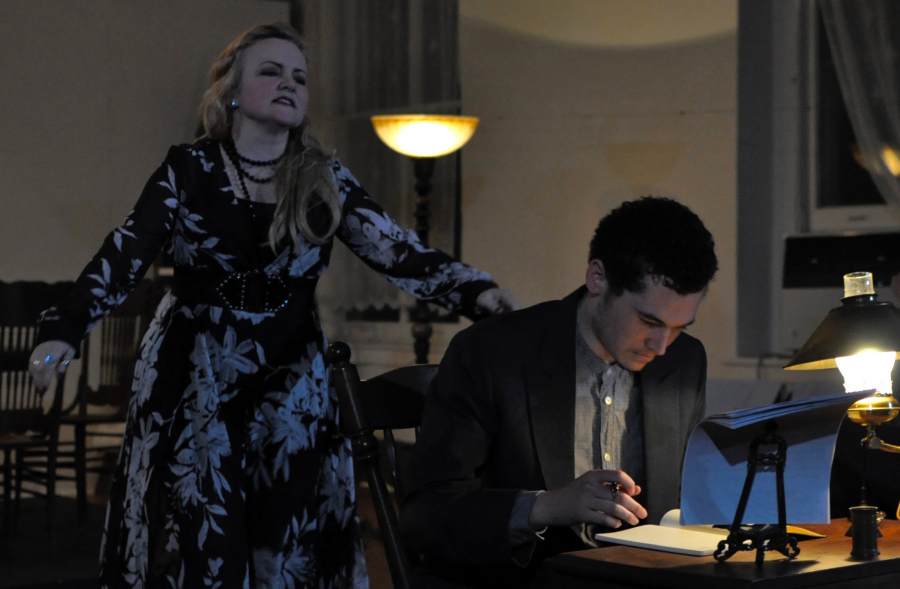

Anton Chekhov’s The Seagull is unarguably one of the most produced plays in the world, but as with most classics there comes a time when each production seems to be very much like the previous, which is why it’s refreshing to see playwrights give it a twist. In the past few years we’ve seen adaptations that range from a country musical, to an irreverent take by Aaron Posner that deconstructed it and put it back together in front of our eyes, so when a new production by The Instigators announced itself as “an immersive, intimate experience of Chekhov's first masterpiece”, it was clear that this was something to be seen.
An immersive production of The Seagull! Imagine that! Would audience members be invited to rehearse for Konstantin’s play and then be insulted by his mother Arkadina? Would we get to spend some time philosophizing with the mopey Masha? Would Trigorin challenge us to a poem competition? Would we get to change Konstantin's badges and see if we could outdo Arkadina’s expert binding? The answer is that audiences would get to do nothing but sit, as the production that promised an immersive experience essentially delivered a traditional staging of the show with an audience sitting in the round.
While it’s arguable that all art should aim to become immersive, as in we as audience members should be immersed in the ideas, dialogues, emotions and aesthetic elements of the production, “immersive theatre” as a technical style is something different. We have come to understand an immersive production is one in which the audience isn’t passive (certainly we can argue that an audience is never passive, but for the purpose of this argument let’s consider passive as sitting down in silence), one in which the audience helps propel the storytelling, and are invited to explore the world of the play up close. Yet the production by The Instigators was nothing of the sort, to realize half an hour into the running time, that nothing about it would be immersive, and that we were bound to our chairs for almost three hours, was akin to showing up for a production of West Side Story and getting Romeo and Juliet instead, meaning that at its core, the play is good, but to be given iambic pentameter when you were promised Bernstein is just plain wrong.
There is nothing particularly wrong about the production, in fact it’s not half bad (Kristen Vaughan’s Arkadina is quite delicious) but it’s not in any way immersive, and as such to give it a positive notice would be unfair. Perhaps the young theatre company will provide what they promise in the future, in the meantime as they try to find their voice among the many theatre companies in the city, they should stick to what they know how to do well, without relying on false advertising.